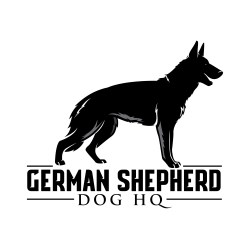Humans have varied feelings over wasabi. Many sushi-eaters love the condiment while others cannot tolerate it.…
Can My Dog Eat Ice Cream?
Yes and no. It really depends on what the ice cream contains. Although the occasional lick of ice cream probably won’t hurt your dog, it’s not really a good choice for a treat. The major concerns about dogs eating ice cream are in dairy, sweeteners, and other flavorings.
1) Dairy
Lactose intolerance is very common in dogs. While not all dogs will have adverse reactions after eating dairy, many can experience some bloating and mild gastrointestinal upset.
Generally, puppies are born with enzymes that allow them to thrive on their mother’s milk. These enzymes are typically not enough to tolerate cow’s milk.
As your dog gets older and is weaned from their mother’s milk, they produce less of the enzymes necessary to digest milk and become lactose intolerant.
Lactose intolerance can normally be observed within 12 hours of consuming dairy. Typical symptoms include bloating, excessive gas, and diarrhea.
If your dog has previously consumed dairy or dairy products without any reactions, they probably aren’t lactose intolerant.
2) Sweeteners
Ice cream is usually loaded with sugar, something that isn’t healthy for your dog to consume.
Additionally, ice cream can be sweetened with xylitol. Xylitol is more dangerous to your dog than sugar! It is a compound that has been proven to be extremely toxic to dogs.
Always check the ingredients list before giving your dog any food made for human consumption. Anything with xylitol is a definite no-no.
3) Flavoring
Many other ingredients commonly used in ice cream can be harmful to your dog. Examples include chocolate, some types of nuts, and raisins. These are considered as toxic foods that may cause vomiting and diarrhea as well as seizures and organ failure.
What To Give Your Dog Instead Of Ice Cream
Who doesn’t want to give their furry friend extra special treats from time to time? I know I do, and there’s something extremely adorable about watching your dog enjoy a cold treat.
Instead of giving them commercial human ice cream, why not make them their own frozen treat? Here are some ideas:
Frozen Banana
Bananas are safe for dogs to eat and they’re also ideally shaped for your pup’s enjoyment. They’re also very easy to prepare, too!
All you need to do is peel a ripe banana and keep it in the freezer until it hardens. You can take it and give it to your dog anytime they deserve a special treat.
Frozen Chicken Broth
Chicken Broth is safe for dogs, and your pooch will love this frozen treat. Pour chicken broth in an ice cube tray, or get special ice cube trays for dogs and freeze until solid.
Below are a couple of dog ice cube trays available on Amazon:
Homemade Frozen Yogurt
If your dog can’t tolerate dairy, yogurt might be the better option because it contains probiotics that could support your dog’s digestive system.
To make a fruity frozen treat for your furry friend, all you need to do is combine a dog-safe fruit with some yogurt (don’t forget to make sure it’s xylitol-free!) and freeze it in a container. Once hardened, this is something your pup will surely enjoy.
Many fruits are safe for dogs. For example, bananas, watermelon, strawberry, and apples are all safe fruits for your pup. Remember to just give your dog the flesh, never give the seeds.
To learn more fruits and other safe human foods for your dog check out this article.
Purchase Frozen Yogurt For Dogs
There are also many commercial products on the market for dog frozen yogurt that is safer for dogs than human ice cream. There are many options available in a variety of flavors, below is one of Allie’s favorites. These treats are normally found in specialty pet stores.
Conclusion
No matter how excited your dog gets over a portion of ice cream, it’s always safer to avoid it, especially if you’re not sure what it’s made of.
While a small ice cream serving from time to time might not cause any harm, there are many better options. To be absolutely sure of your dog’s safety, it’s always better to make your own frozen treats or purchase frozen treats made specifically for dogs.
What frozen treats does your dog love? Let me know in the comments.
References:
- PetMD. “Can Dogs Drink Milk?” Retrieved from https://www.petmd.com/dog/nutrition/can-dogs-drink-milk
- The Veterinary Clinics of North America – Small Animal Practice. “Xylitol Toxicosis in Dogs: An Update.” Retrieved from https://www.ncbi.nlm.nih.gov/pubmed/30064708
- The American Society for the Prevention of Cruelty to Animals – ASPCA. “Animal Poison Control – People Foods to Avoid Feeding Your Pets.” Retrieved from https://www.aspca.org/pet-care/animal-poison-control/people-foods-avoid-feeding-your-pets
- American Kennel Club – AKC (May 2015). “Can Dogs Eat Yogurt?” Retrieved from https://www.akc.org/expert-advice/nutrition/can-dogs-eat-yogurt/
- PetMD. “The Dog Owner’s Guide to Nuts and Seeds.” Retrieved from https://www.petmd.com/dog/nutrition/evr_dg_dog-owners-guide-to-nuts-and-seeds
- American Kennel Club – AKC (Dec. 2015). “Fruits & Vegetables Dogs Can and Can’t Eat.” Retrieved from https://www.akc.org/expert-advice/nutrition/fruits-vegetables-dogs-can-and-cant-eat/






